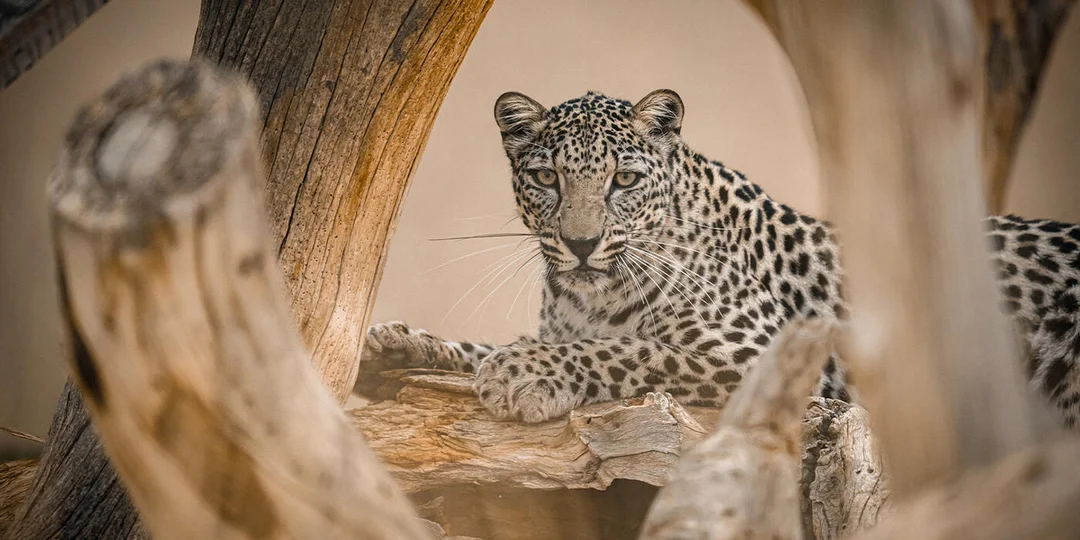
Collaborative Conservation Efforts To Save The Critically Endangered Arabian Leopard
The Smithsonian’s National Zoo and Conservation Biology Institute (NZCBI) has partnered with the Royal Commission for AlUla (RCU) to facilitate a groundbreaking conservation initiative aimed at safeguarding the critically endangered Arabian leopard. This collaboration is not just significant because it pools together immense expertise in conservation from both organizations, but it also emphasizes a global commitment to preserving a species at the brink of extinction.
The Arabian leopard, classified as critically endangered on the IUCN Red List, faces dire survival challenges. With an estimated fewer than 120 individuals left in the wild, primarily in Oman and Yemen, the species may even be considered functionally extinct in its native Saudi Arabia. This partnership is a proactive step toward securing a brighter future for the Arabian leopard, a symbol of Saudi Arabia's rich natural heritage.
RCU operates the Arabian Leopard Conservation Breeding Center in Taif, a facility that has seen remarkable success under their management since 2020. Due to focused breeding efforts and dedicated care, the leopard population has more than doubled, welcome seven cubs in 2023 and five in 2024, including a rare set of triplets. Achieving accreditation from the European Association of Zoos and Aquaria in 2025 marks a significant milestone, setting a high standard for wildlife conservation in Saudi Arabia.
Simultaneously, NZCBI boasts an extensive history of managing rare and endangered species, using specialized knowledge to conduct breeding programs for felids like cheetahs and tigers. Their involvement in this initiative directly enhances efforts towards Arabian leopard conservation, contributing resources and scientific expertise to promote effective animal care and engage the public in conservation efforts.
A special focus of this collaboration is on creating a shared understanding of the Arabian leopard's needs through joint research and knowledge exchanges. An exciting prospect is the potential establishment of an Arabian leopard exhibit in Washington, D.C., which aims to galvanize support for this majestic creature and its shrinking desert ecosystem. As Brandie Smith, NZCBI’s Director, noted, “Saving the world’s most vulnerable species takes global cooperation, scientific rigor, and innovation—this we do best.”
Abeer AlAkel, CEO of RCU, echoed these sentiments by emphasizing the strategic importance of this collaboration within the context of Saudi Vision 2030. “This partnership underscores RCU’s commitment to global conservation and aims to share the Arabian leopard story with a broader audience,” she stated. Through habitat restoration, reintroducing prey species, and local community engagement, the long-term vision is to foster conditions where Arabian leopards can thrive in their native habitats once again.
In conclusion, this partnership between NZCBI and RCU reflects a monumental effort towards wildlife conservation that underscores the power of international cooperation in addressing the challenges of the modern conservation landscape. What steps do you think can further enhance global efforts to protect endangered species? Share your thoughts in the comments below!
Latest
Can you Like
In the ever-evolving realm of wildlife conservation, understanding animal behavior has become a fundamental cornerstone for successful initiatives. Recent studies underscore the crucial link between b...
Two adorable African penguin chicks have recently hatched at the Ross Park Zoo, bringing joy and hope to both the zoo's staff and animal enthusiasts. This event holds significant importance as it not ...
As summer approaches, the majestic monarch butterfly begins its annual migration, a fascinating journey that underscores the delicate balance of our ecosystem. These vibrant insects, known for their s...